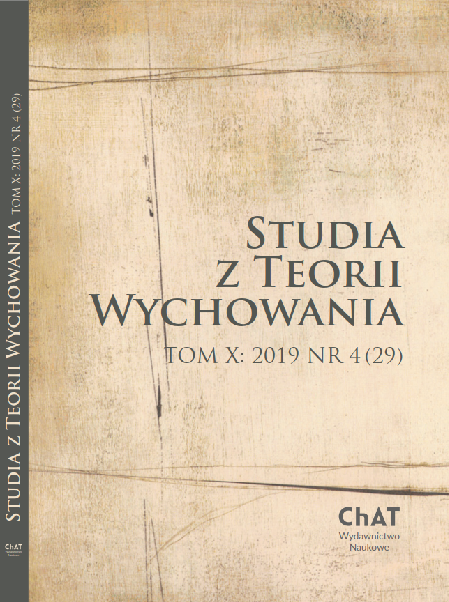Internet jako edukacyjna przestrzeń życia młodzieży akademickiej
Internet as educational space in life of university students
Author(s): Beata MajSubject(s): Social Sciences, Education
Published by: Wydawnictwo Naukowe ChAT
Keywords: Internet; electronic media; educational space; university students
Summary/Abstract: The Internet environment offers more and more knowledge resources as well as more and more better portals and educational platforms, creating a variety of learning opportunities, vocational training and improvement. Network resources have now become an important space educational – and self-education – of young people. Research carried out by me in 2017 among students of the University of Wroclaw show that in the course of studying internet sources of knowledge (websites, educational portals) are used on a par with handbooks and other books recommended by lecturers. Some of the respondents attribute this to materials even higher value due to the more accessible language and frequent content update. This differentiates the results in relation to my findings from a few years ago whose respondents raised the issue of reliability and certainty of online knowledge. The network environment, off ering a kind of convergence of earlier media, is today is a serious competition for television, the press or a book in a paper issue. Places these relays, however, have not been fulfilled, as one might think, of their electronic substitutes: e-newspapers, e-books or audiobooks. The most important source of scientific knowledge as well all popular information and news from the country and from the world remained popular websites and Internet portals. Also organized forms of training in the form of courses, on-line workshops or trainings are poorly disseminated in the studied student population. Only a few people have implemented language courses or specialized trainings this way. After graduation, however, they declare to undertake further education or further training online. The position of the respondents with regard to the virtual mode studies is clearly skeptical. The respondents question the value of such education in terms of both substantive, as well as in terms of acquired qualifications and competences (in the dimension professional as well as social). Virtual universities are not answered by respondents mentioned reasons – perceived as a real threat to traditional institutions educational. On-line training, seen today as an important supplement to traditional roads education, it seems, in their opinion, very forward-looking.
Journal: Studia z Teorii Wychowania
- Issue Year: X/2019
- Issue No: 4 (29)
- Page Range: 135-154
- Page Count: 20
- Language: Polish

